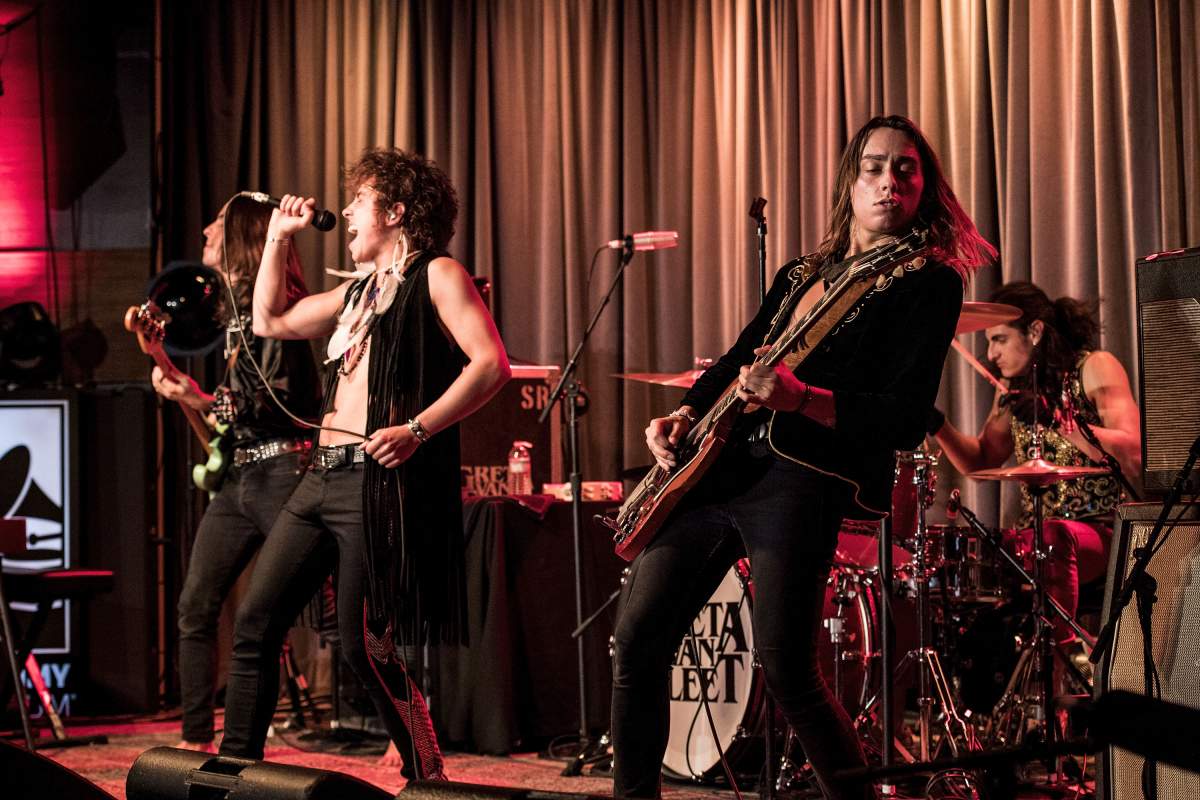If you’re a music or sports fan, it’s likely you’ve experienced the excruciatingly troublesome task of successfully buying tickets.

You could be prepared for one of Ticketmaster‘s stressful digital lineups at 10 a.m. on a Friday, or scrambling last-minute on the internet for a Live Nation exclusive presale code, but no matter the situation, it’s pretty much impossible to secure front-row tickets to see your favourite band or dead-centre tickets for the hockey playoffs.
If you’ve ever been suspicious of Ticketmaster and the constant lack of available tickets, it turns out you were on to something.
READ MORE: New poll finds Canadians want an end to tyranny of ticket scalping ‘bots’
A joint study published by CBC and the Toronto Star Wednesday morning detailed how the publications each sent two undercover journalists to Ticket Summit 2018, a live-entertainment convention that took place at Caesar’s Palace in Las Vegas over the weekend.
The gathering revealed the Live Nation-owned Ticketmaster enlists scalpers to sell tickets for ludicrous prices on their very own secret secondary-ticket site, TradeDesk — a.k.a. “The most powerful ticket sales tool ever,” according to a sales representative.
All information is secure for scalpers signed up for TradeDesk. No names, details or account info make it through to Ticketmaster’s buyer-abuse division, which is supposed to crack down on bots and secondary ticket sellers.
According to the study, Ticketmaster scalpers can then create various accounts and use bots to buy out mass amounts of tickets using TradeDesk. Ticketmaster allegedly turns a blind eye to these fake profiles.
READ MORE: Taylor Swift doing better job at stopping scalpers than Ontario’s new ticket rules, experts say
That’s when all these tickets suddenly pop up on “official” secondary selling sites like VividSeats and StubHub. Scalpers make their profit and additional fees — up to twice the initial Ticketmaster fee — that make their way back to the corporate giants.
A professor at University of Toronto’s Rotman School of Management, Richard Powers, spoke to the Star, saying it’s “unethical” and “misleading” to shame scalpers and then help them on the side.
The report’s findings fly in the face of a “fair and safe marketplace for your customers,” which Ticketmaster proudly boasts.
But what can be done about this? How can the average person avoid the gouge?

Get daily National news
Even musicians have been fighting against Ticketmaster since the 1990s. Take Pearl Jam, for example. They took the ticket seller to court in a battle against hiked consumer fees back in 1995.
READ MORE: Here are five ways buying concert tickets could be made easier
Individual presale codes
Unfortunately, Pearl Jam lost their case, but they truly made a difference. Their combatant activism was what sparked the ongoing fight against ticket sellers. To this day, Pearl Jam sends out individual presale codes via their fan club (Ten Club), which is exclusive to members only.
Presale codes are often distributed through Live Nation or Ticketmaster. They tend to be generic codes that can easily be distributed online (e.g. “ANTHEM,” “ROCKNROLL”.) They do not allow for a true presale experience. They just allow scalpers to act faster.
Paperless ticketing
British heavy metal pioneers Iron Maiden jumped onto the individual presale code system too, and it’s worked wonders for their fans. It’s something scalpers can’t access and distribute. They were also among the first to try the “paperless ticketing” system, which cut scalping for their 2017 U.K. tour by 95 per cent.
With paperless ticketing, the only way to enter a show is with the credit card used for the order, accompanied by an approved ID with a matching name.
U2 jumped onto this bandwagon for their Joshua Tree anniversary tour last year, but people complained this caused venue entry to be a much slower process. On the plus side, it certainly helped validate fans by slashing scalper prices.
READ MORE: B.C. government promises crackdown on ticket bots and ‘price-gouging’ scalpers
Box office lineups
Sometimes taking a step backwards isn’t a bad thing. In the olden days (decades ago, pre-internet), fans would line up outside venues or ticket sellers to buy tickets at predetermined times. Having it on a first-come, first-served basis makes it as fair as possible.
Rockers Greta Van Fleet and ’90s icons Nine Inch Nails brought back this so-called “ancient” method for both of their 2018 U.S. tours in an effort to “battle the bots,” something that fellow ’90s band Foo Fighters preached in 2015.
Here’s what NIN posted to their official website:
“The promise of a world made better by computers and online connectivity has failed us in many ways, particularly when it comes to ticketing. Everything about the process sucks and everyone loses except the reseller. Tickets will not be available online or anywhere else before or during that day. All seats (including the best seats) will be available first come, first serve. Nine Inch Nails has always been about bringing people together.”
READ MORE: Public calls for price cap on resold tickets, cracking down on bots
Speak out, make a change
European governments have been taking action for some time now, following the consistent uproars caused by people missing out on music festival and soccer league tickets. One by one, country by country, scalping is becoming illegal across the continent.
France and Spain have already made it illegal to sell tickets unless authorized by the original selling company.
Ireland joined their ranks in a similar manner this summer. A bill was passed, saying that tickets are allowed to be resold under the condition that they must be priced face value or below. If you’re caught scalping tickets in these European countries, you will be fined.
The bill has been a real game-changer for music and sports fans alike. Check out the other European countries that have banned ticket resales.
READ MORE: ‘To send a message’ — Winnipeg police arrest scalpers ahead of Tragically Hip concert
As of this writing, Manitoba is the only Canadian province which has completely forbidden reselling tickets at a higher price (official seller or not). Quebec and Saskatchewan have passed price-hiking legislation to regulate official merchants.
For now, if you reside anywhere else in Canada, your only option seems to be Ticketmaster … at least for now.















Comments
Want to discuss? Please read our Commenting Policy first.